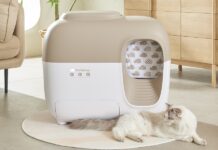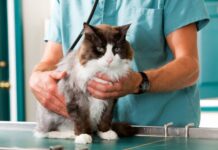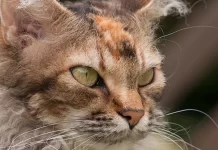Last Updated on August 24, 2023 by Fumipets
Reasons for Cat Drooling, from Sickness to Stress
Cat drooling, also known as hypersalivation, can be triggered by various factors, ranging from medical conditions to emotional states. While occasional drooling is normal, excessive or prolonged drooling may indicate an underlying issue.
Here’s a summary of the reasons for cat drooling and what you should know about this behavior.
Summary of Cat Drooling Reasons
Cat drooling can stem from both physical and psychological causes. Dental problems, such as gum disease or tooth infections, can lead to drooling due to pain or discomfort. Other medical issues, including nausea, gastrointestinal problems, and respiratory infections, can also trigger excessive salivation.
Stress and anxiety can manifest as drooling in cats. Changes in their environment, introduction of new pets, or other stressors may result in this response. Additionally, certain medications or toxins can cause drooling as a side effect.
Observing the frequency, duration, and context of your cat’s drooling is essential in determining whether it’s a cause for concern. If drooling is accompanied by other symptoms like vomiting, lethargy, or changes in appetite, consult a veterinarian for proper diagnosis and treatment.
Cat Drooling
In the 1993 film Homeward Bound, Sassy says, “Cats rule, dogs drool.” Contrary to dogs, who often drool due to many factors such as hunger (also known as the Pavlovian reaction), fear, or sickness, cats seldom drool. However, it does occur and, like a dog’s, it is an instinctive reaction.
Since cats are far less messy droolers than dogs, their drool doesn’t resemble the lengthy wisps of saliva that characterize canine drool. Instead, you could see a single droplet of saliva dotting the space below your cat’s mouth. Cats drool for a reason, however.
A cat could behave in this way for a number of reasons. While some of these causes are significant enough to need emergency veterinary attention, others are rather innocuous, and the drooling will stop once the underlying cause is resolved. Here is an explanation:
Reasons Your Cat May Be Drooling
1. Your Cat is Sick.
According to Ethan Nunnally, DVM, of the Large & Small Animal Medicine & Surgery, Animal Health Centre of Albia, Iowa, your cat’s drooling may be caused by physical factors. He claims that when cats are in agony, they drool. “Your cat may have stomatitis, a mouth and lip inflammation.” Your cat may have a mouth infection if there are any inflammations. He adds that abscessed teeth and gum problems may make cats drool. Your veterinarian should be consulted.

2. Your Cat Has Something Lodged in Her Throat or Esophagus.
If your cat has access to indoor plants or goes outdoors, it’s possible that she ate a piece of grass, a leaf, or another material that became stuck in her mouth or esophagus. Your cat may drool as a result of having difficulty swallowing due to a foreign body in these regions. Speak with your veterinarian if you believe this may have occurred.
3. Your Cat Has Eaten Something that Tastes Bad.
If your cat has eaten something bad-tasting, he may also drool. Cats often vomit up whatever poison they may have consumed. However, if they’ve eaten something that only tastes unpleasant, they could drool to get rid of the flavor (just as you would drool if you taste something unpleasant). Nunnally advises you to see your veterinarian if your cat is drooling unusually.
4. Your Cat is Anxious.
Your cat could drool if you put her in a carrier and drove her to the doctor because she is terrified of, well, so many aspects of that situation. Nunnally warns that if your cat becomes really excited about anything, he can slobber. Cats don’t like change in general, so an unusual experience like a vehicle journey could make them more anxious and cause their salivary glands to overproduce saliva. If this occurs, be calm and wait it out; eventually, your cat will stop drooling.
5. Your Cat is Afraid.
Even just fear may make a cat slobber. Your cat could slobber a much if she feels threatened. Get your cat away from the stressor if as all possible; once she feels secure again, she will stop drooling.
6. Your Cat is Happy and Relaxed.
Some cats drool when they are happy, according to Marilyn Krieger, a San Francisco-based Certified Cat Behaviour Consultant and the author of Naughty No More: Change Unwanted Behaviours Through Positive Reinforcement. She adds, “They might also be kneading as well.” Drooling is a joyful behavior in certain cats. If you don’t like the saliva, Krieger advises putting a blanket or washcloth beneath your cat while you touch her to prevent being drooled on. Think of it as a response to the happiness of being with you. “Don’t try to change the behavior or be upset by it,” she advises. Some cats simply drool a much.
5 Q&A on Cat Drooling
1. Is occasional drooling normal for cats?
Yes, occasional drooling can be normal, especially during grooming or when they’re excited. However, excessive or continuous drooling may indicate an issue.
2. What medical conditions can cause cat drooling?
Medical causes include dental problems, mouth infections, gastrointestinal issues, respiratory infections, and nausea from various sources.
3. Can stress lead to cat drooling?
Yes, stress and anxiety can cause excessive drooling in cats. Changes in their environment, routine, or the introduction of new pets can trigger this response.
4. How should I respond if my cat is drooling excessively?
Monitor your cat’s drooling patterns and look for other symptoms. If the drooling is persistent, accompanied by vomiting, lethargy, or changes in behavior, consult a veterinarian for a proper diagnosis.
5. Can dental problems be a common cause of drooling in cats?
Yes, dental problems like gum disease, tooth infections, or oral lesions can lead to drooling due to pain or discomfort in the mouth.
Understanding the potential causes of cat drooling, from medical issues to emotional stressors, is crucial for providing appropriate care and addressing any underlying concerns. If you’re uncertain about the cause of your cat’s drooling, seeking guidance from a veterinarian ensures your feline friend receives the necessary attention and treatment.


















